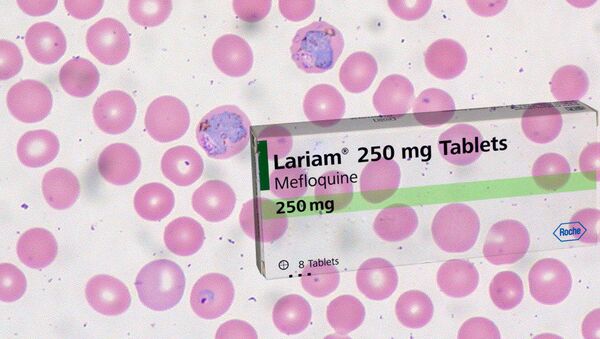Former army officer and malaria expert Lt Colonel Ashley Croft, who served as a doctor in the Royal Army Medical Corps, told a parliamentary inquiry into the matter that the MoD's use of Lariam, also known Mefloquine, was "irrational, illogical and unethical."
Second Lariam oral evidence session announced: Tuesday 8 December https://t.co/3F3I3qDJgl
— Defence Committee (@CommonsDefence) December 4, 2015
Croft told the House of Commons Defense Select Committee inquiry that there are other much safer anti-malaria products available.
"Mefloquine is the least safe of the available antimalarials currently used."
In an indictment on the British military hierarchy, Lt Colonel Croft said he raised concerns he had with the use of Lariam numerous times during his time with the armed forces, but was met with a "mixture of incomprehension, indifference and sometimes hostility."
1,000 Needed Psychiatric Help
There has been public concern over the safety of British servicemen and women after a Freedom of Information request earlier this year revealed that since 2007, about 1,000 service personnel had sought psychiatric help after taking Lariam.
The MoD has continued to use Lariam, despite warnings from Dr Franz B. Humer, then chairman of Roche, the drug's manufacturers, who told the company's annual general meeting in 2007 that there were improved products on the market.
"More effective antimalarials with better side effect profiles were now available, and these were generally used," Dr Humer said.
The company also wrote to British doctors in 2013, warning that "hallucinations, psychosis, suicide, suicidal thoughts and self-endangering behavior have been reported" as a result of people using Lariam, and that the drug "may induce potentially serious neuropsychiatric disorders."
'Lariam — Not Drug of Choice Anywhere Else'
A number of other products with less severe side effects are available and are used by the defense forces of many other countries, however many of them cost much more than Lariam, sparking allegations that the MoD was putting a price on the mental health of British officers.
Canada, Denmark, France, Germany, the Netherlands, Norway, and the US have either banned the use of Lariam or use it as a last resort.
It's thought that the MoD issues the drug to British troops, but not pilots or drivers, increasing speculation that authorities are aware of the potential side effects.
Former US Army doctor Dr Remington Nevin, who specializes in the psychiatric effects of Lariam told the MPs' committee:
"Lariam is not the most effective drug [against malaria], there is no area of the world where it is the preferred drug."
He warned that the side effects of the drug can be confused with post-traumatic stress disorder, with a concerning link with acts of violence and aggression.
"No anti-malarial treatments are without associated side effects and it is crucial we protect our personnel from this potentially fatal disease upon deployment to affected areas," an MoD spokesperson said in a statement.
"Mefloquine is not generally a first choice anti-malarial, but it is prescribed to some personnel when deployed in certain parts of the world or because of their medical history."



